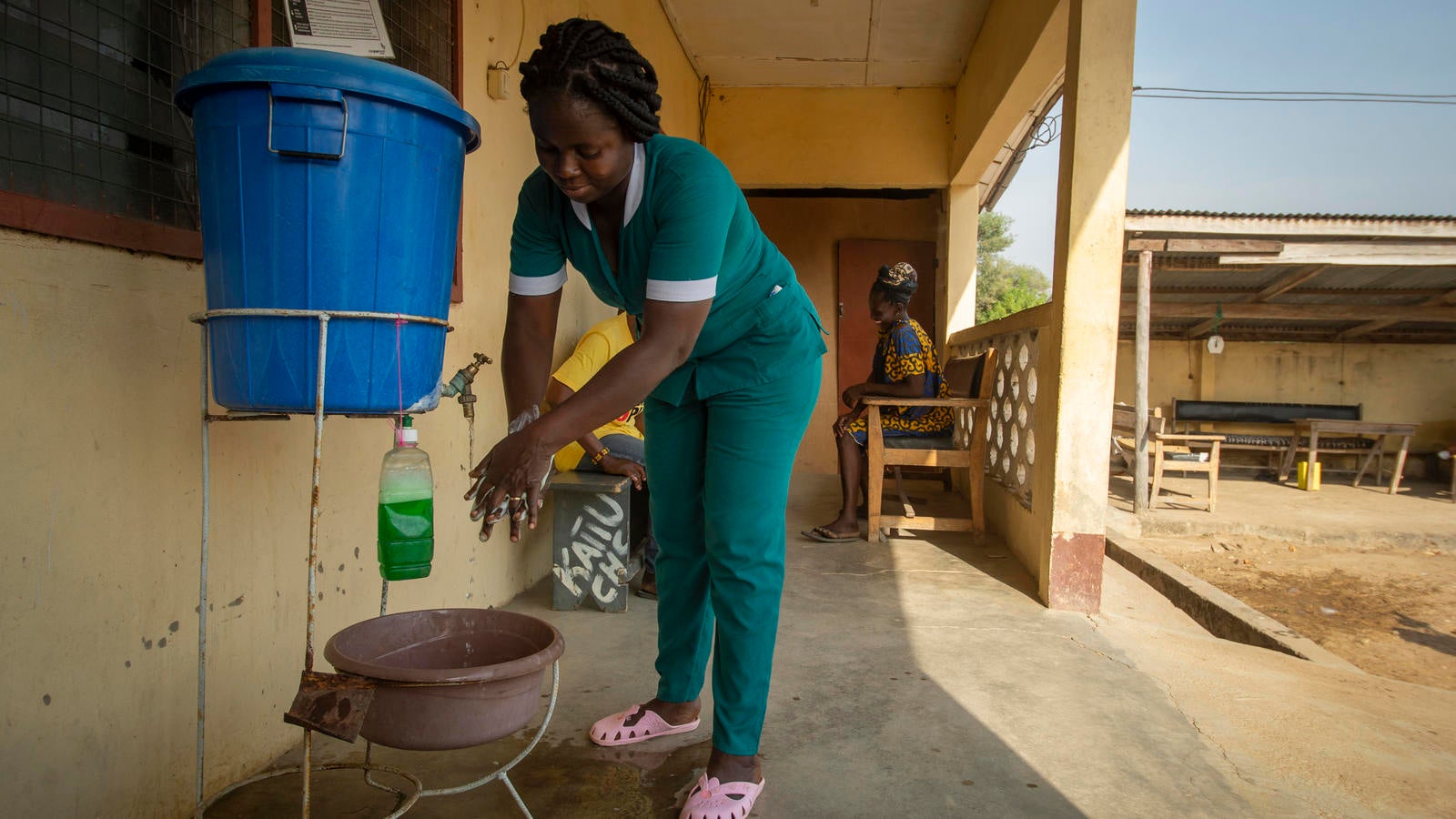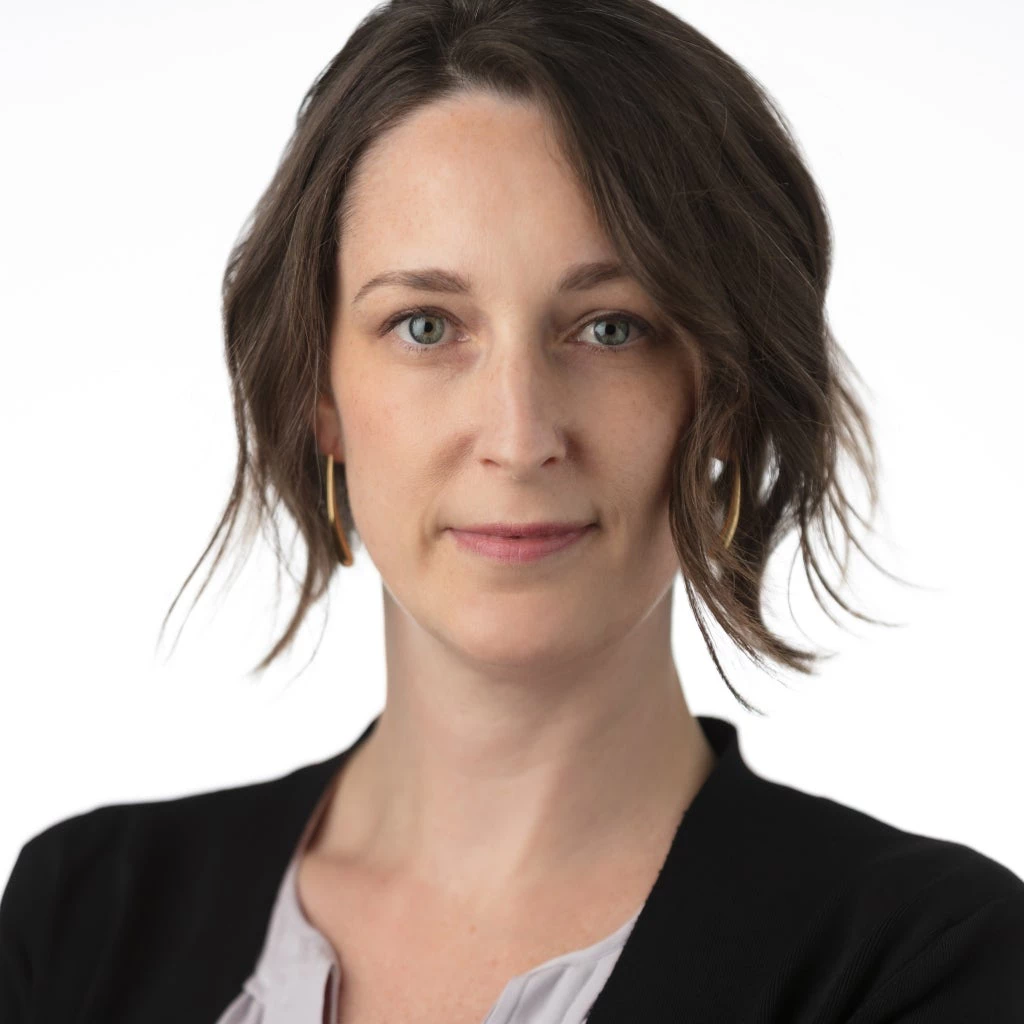 WaterAid/ Eliza Powell
WaterAid/ Eliza Powell
Globally, one in four health care facilities has no basic water services, while one in five lacks sanitation services. 42% of health care facilities have no hand hygiene at points of care, and 40% have no systems for waste segregation. These basic water and sanitation services are all essential for preventing infections, reducing the spread of disease, and providing safe, quality and dignified care, particularly in childbirth.
Everyone experiencing health care – patients, their families, staff and others – deserve to be cared for and work in a clean, safe environment. That is the 2019 Resolution on WASH in health care facilities (HCF), which was unanimously agreed by member states at the 72nd World Health Assembly in May. WHO and UNICEF are seeking commitments from governments, partners and international organizations in line with this Resolution.
We at the World Bank are aligned with our clients and partners in the recognition that every health care facility around the world deserves to have functioning WASH facilities as a matter of critical importance for dignity, equity, and quality of care.
Last week, I attended the Global Meeting on WASH in Health Care Facilities (HCF), convened by WHO and UNICEF and hosted by the Government of Zambia. Around 100 government officials, donors and partners gathered in Livingstone, Zambia, to discuss how to translate the proposed Resolution into practical, actionable steps, presenting solutions and garnering further support for resource commitment.
In addition to representing the Bank in the technical discussions, I also took the opportunity to highlight World Bank support on WASH in health care facilities through our lending and analytical work.
In partnership with government clients, the World Bank’s Water Practice is financing WASH in health care facilities in at least 12 countries across 8 regions. In Ethiopia, for example, we have committed US$300 million to support Ethiopia’s One WASH National Program. Among other activities, the project includes the provision of comprehensive WASH facilities that meet SDG and Ministry of Health criteria in over 1,400 health facilities nationally.
But we recognize that achieving basic WASH services in health care settings around the world is too complex an undertaking to be solved through greater financial resources alone. In addition to financing, we are also using complementary avenues to help countries meet their targets for basic WASH in HCF.
The first is to leverage existing platforms in the World Bank to bring more visibility to the challenges of WASH in HCF and use them to scale up solutions that capitalize on synergies between WASH and health. One of these platforms is the World Bank’s Human Capital Project, which has generated unprecedented demand for more and better investments in health, education and basic services. It is now active in 65 countries, and each of these countries presents an opportunity to draw attention to governments for the need for WASH services in HCF to prevent maternal and newborn deaths and safeguard health throughout the life cycle.
Another avenue we are using to help countries meet their targets is the use of innovative financing approaches, such as through our Program-for-Results instrument, where loan disbursements are tied to credible verification of results. The Program-for-Results has proven to be an effective tool for incentivizing soft outcomes like sustainability of services. For example, in Burkina Faso and Vietnam, loan disbursements are tied to both the construction of eligible WASH facilities in health care centers and to the sustainable operations and maintenance of those facilities, with results tracking and verification taking place at various points throughout the project cycle.
Finally, we remain committed to deliver on cutting edge knowledge and analytical work, with support from the Global Water Security and Sanitation Partnership multi-donor trust fund. In the coming year, we plan to make use of the analytical methods developed under the WASH Poverty Diagnostic Initiative to expand these diagnostics to more countries in the Africa region, with an emphasis on WASH in HCF.
Most events end with a resolution. What was exciting about the Global Meeting on WASH in Health Care Facilities is that it started with a resolution. During the three days of discussion and knowledge sharing, participants felt energized and confident that the revolution is underway and that bringing universal access to WASH in HCF is achievable! At the World Bank, we stand ready to help every country move from resolution to revolution. Stay tuned for more updates by following the hashtag #R2RWASHinHCF, and join us in raising awareness around this critical issue and working towards more solutions and resources on the ground.


Join the Conversation